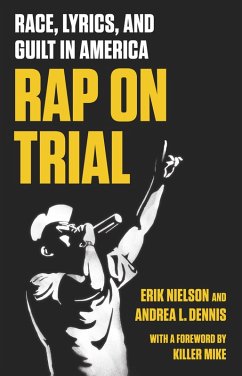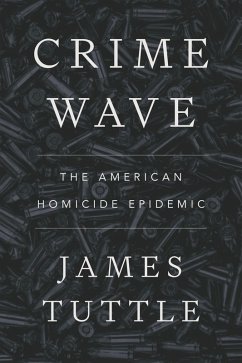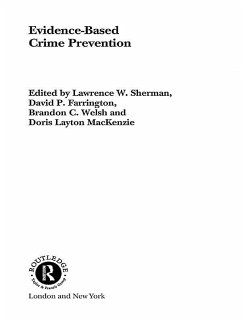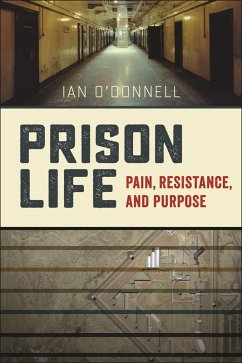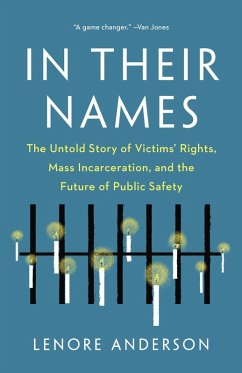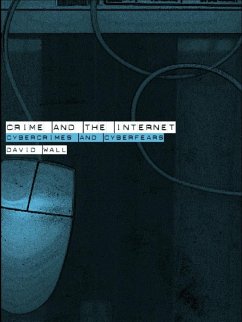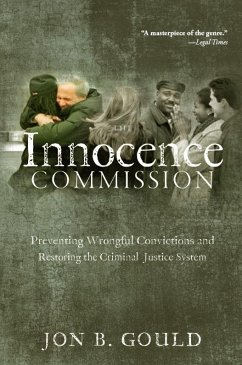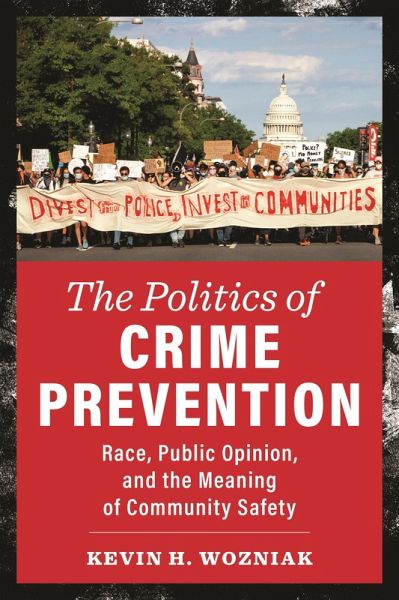
The Politics of Crime Prevention (eBook, ePUB)
Race, Public Opinion, and the Meaning of Community Safety
Versandkostenfrei!
Sofort per Download lieferbar
22,95 €
inkl. MwSt.
Weitere Ausgaben:

PAYBACK Punkte
11 °P sammeln!
An important understanding of the role public opinion plays in crime prevention policy"Defund the police." This slogan became a rallying cry among Black Lives Matter protesters following the murder of George Floyd in Minneapolis in May 2020. These three words evoke a fundamental question about America's policy priorities: should the nation rely predominantly upon the branches of the criminal justice system to arrest, prosecute, and imprison offenders, or should the nation prioritize fixing structural causes of crime by investing more heavily in the infrastructure and institutions of disadvanta...
An important understanding of the role public opinion plays in crime prevention policy
"Defund the police." This slogan became a rallying cry among Black Lives Matter protesters following the murder of George Floyd in Minneapolis in May 2020. These three words evoke a fundamental question about America's policy priorities: should the nation rely predominantly upon the branches of the criminal justice system to arrest, prosecute, and imprison offenders, or should the nation prioritize fixing structural causes of crime by investing more heavily in the infrastructure and institutions of disadvantaged communities? To put it simply, do Americans actually prefer punishment over crime prevention?
The Politics of Crime Prevention examines American public opinion about crime prevention in the twenty-first century with a particular focus on how average citizens would choose to prioritize resources between the criminal justice system and community-based institutions. Kevin H. Wozniak analyzes differences of opinion across lines of race, social class, and political partisanship, and investigates whether people's willingness to invest in communities depends upon the kind of communities that would receive money. This book moves beyond criminologists' typical focus on public opinion about punishment that follows acts of crime to instead examine public attitudes toward crime prevention. In this brilliant and compelling study, Wozniak reveals that politicians profoundly underestimate the American public's desire to prioritize community investment and that it is long past time to help communities thrive instead of turning to the criminal justice system to respond to every social problem.
"Defund the police." This slogan became a rallying cry among Black Lives Matter protesters following the murder of George Floyd in Minneapolis in May 2020. These three words evoke a fundamental question about America's policy priorities: should the nation rely predominantly upon the branches of the criminal justice system to arrest, prosecute, and imprison offenders, or should the nation prioritize fixing structural causes of crime by investing more heavily in the infrastructure and institutions of disadvantaged communities? To put it simply, do Americans actually prefer punishment over crime prevention?
The Politics of Crime Prevention examines American public opinion about crime prevention in the twenty-first century with a particular focus on how average citizens would choose to prioritize resources between the criminal justice system and community-based institutions. Kevin H. Wozniak analyzes differences of opinion across lines of race, social class, and political partisanship, and investigates whether people's willingness to invest in communities depends upon the kind of communities that would receive money. This book moves beyond criminologists' typical focus on public opinion about punishment that follows acts of crime to instead examine public attitudes toward crime prevention. In this brilliant and compelling study, Wozniak reveals that politicians profoundly underestimate the American public's desire to prioritize community investment and that it is long past time to help communities thrive instead of turning to the criminal justice system to respond to every social problem.
Dieser Download kann aus rechtlichen Gründen nur mit Rechnungsadresse in A, D ausgeliefert werden.




